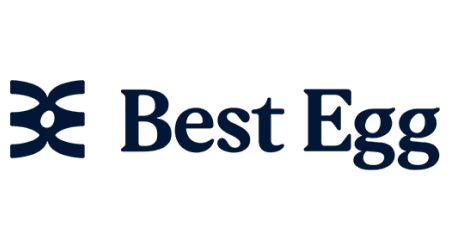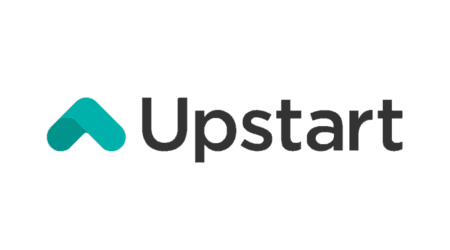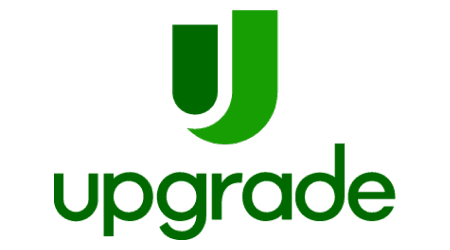While most traditional lenders don’t offer $1,500 personal loans, it’s possible to find a loan of this size for competitive rates from an online lender — sometimes as soon as the next business day. But you won’t be able to qualify for the lowest rate that lenders offer, even with perfect credit.
Before you apply, ask your bank if you’re eligible for a $1,500 loan. Banks tend to offer customers lower rates than online lenders and may fund your loan the same day you apply, since they’re already familiar with your credit and income.
Compare 6 lenders that offer $1,500 loans
Compare the rates and terms available from lenders that offer small personal loans. Choose Go to site to prequalify for an offer.
| Provider | Min credit score | APR | Terms | Finder rating | |
|---|---|---|---|---|---|
| Upstart | 300 | 7.80% to 35.99% | 36 or 60 months | ★★★★★ | |
| Achieve | 620 | 8.99% to 35.99% | 2, 3, 4 or 5 years | ★★★★★ | |
| Upgrade | Not disclosed on website | 9.99% to 35.99% | 2 to 7 years | ★★★★★ | |
| LendingClub | 600 | 8.98% to 35.99% | 2 to 5 years | ★★★★★ | |
| Fiona | 550 | 5.40% to 35.99% | 4 months to 12 years | ★★★★★ | |
| OneMain Financial | 300 | 18% to 35.99% | 24, 36, 48 or 60 months |
How much does a $1,500 loan cost?
The total cost of your loan will depend on the type of lender you go with, your finances and your credit score. Your monthly payments are based on two factors: Your APR and your loan term.
You won’t be able to qualify for the lowest rate available when you borrow $1,500 — it’s not worth it to lenders to lend that amount unless they charge more than they would on say, a $15,000 loan. However, you can lower your rate by choosing a shorter loan term.
Let’s take a look at an example of how your term would affect the cost of a $1,500 loan:
| Term | APR | Monthly payment | Interest cost |
|---|---|---|---|
| 1 year | 10.00% | $131.87 | $82.49 |
| 2 years | 10.25% | $69.39 | $165.37 |
| 3 years | 10.50% | $48.75 | $255.13 |
As this table shows, a three-year term might has a monthly payment less than half the size of a one-year term — but it costs more than three times as much in total interest.
Some lenders also charge an origination fee, which is a percentage of your loan amount either deducted from your loan before you receive your funds or added to the loan balance. This is also based on your credit score and can reach as high as 10%. If you have bad credit, expect to pay a higher origination fee in addition to higher rates and fees.
Calculate your loan repayments
Use our monthly payment calculator to estimate how much you’ll pay with different rates and terms.
$1,500 loan calculator
Calculate how much you can expect to pay each month|
Your loan
|
|---|
| Loan amount |
|
$
|
| Loan terms (in years) |
|
|
| Interest rate |
|
%
|
Based on your loan terms
| Principal | $ |
|---|---|
| Interest | $ |
| Total Cost | $ |
How long does it take to get a $1,500 loan funded?
Get a $1,500 loan funded within 24 hours with most online lenders. It might take longer if you don’t work full time, since lenders need to verify your income with something other than a paystub.
Banks or credit unions can take longer to fund a loan, especially if you don’t have a relationship with them. If you’re a current customer, you might be able to receive the funds the day you apply, since they’re already familiar with your credit and finances. Otherwise it could take around one to two weeks to receive the funds.
How to pay down $1,500
Personal loans come with monthly payments toward your loan balance and interest. While there’s nothing wrong with sticking to your payment plan, there are a few tricks you can use to save on interest and get out of debt more quickly:
- Use autopay to qualify for a discount. Most lenders will deduct 0.25% from your loan if you automate your monthly payments.
- Split payments into two repayments per month — if your lender doesn’t charge a prepayment penalty. This means you’ll have a lower balance when your payment is due, which translates to a lower interest cost.
- Prepay your loan whenever you have a little extra cash to close it out more quickly and save on interest. But also check if your lender charges a prepayment penalty. Otherwise you might not save on interest.
Contact your lender as soon as possible if your financial circumstances change. Most offer around three months of forbearance if you’re facing a temporary setback.
They also may be willing to renegotiate the terms of your loan to reduce your monthly payment permanently. But save these options for true emergencies: Both will end up costing you more in the end.
Eligibility requirements for a $1,500 personal loan
Depending on the lender, you may qualify for a $1,500 loan if you meet the following criteria:
- Fair or good credit of at least 600
- Steady source of income
- Checking or savings account
- Established credit history
- At least 18 years old
Can I qualify for a $1,500 loan if I’m unemployed?
You can get a loan when you’re unemployed as long as you receive some sort of regular income. This can include unemployment checks if you can prove that you’ll continue to receive them for the length of your loan term.
Other types of benefits such as alimony, child support or retirement savings also count as income. But if your income is irregular, you may have a hard time qualifying.
How to increase your chances of approval for a $1,500 loan
While there is no definite way to make sure a lender approves your application, here are some simple tips:
- Review your credit reports. You actually have three different credit reports with three different credit bureaus: Experian, Equifax, and TransUnion. Each report may have different information. Review each report, check for mistakes and correct them if possible before you apply for new credit — and you’ll know what lenders are seeing when they pull your reports.
- Know your credit score. There are two main credit scoring models: FICO and VantageScore 3.0. While most lenders rely on FICO, figure out both so you know where you stand and find lenders willing to work in your credit score range.
- Check requirements before you apply. Applying for new credit can hurt your credit score for a little while, typically around five points for up to 12 months. Before you apply for new credit, check the eligibility requirements so you aren’t wasting your time.
- Prequalify. Most lenders allow you to prequalify for a specific amount so you know how much wiggle room you have.
- Reduce your credit card debt. If you have any credit cards with balances over 20% of their borrowing limits, it’s very likely it’s harming your credit score. And it increases your debt-to-income ratio due to the minimum monthly payments. Reduce your outstanding debt as much as possible — it can increase your credit score, possibly free up some monthly income and show lenders you’re able to maintain revolving credit alongside other debt.
Alternatives for $1,500 loans
A $1,500 loan may not be worth it in some cases — especially if your budget is inflexible or you only need the funds to hold you over until your next paycheck. Before you apply, consider these alternatives:
- Payday Alternative Loans (PALs) II are available through federal credit unions as a low-cost alternative to short-term loans. Through this program you can borrow up to $2,000 with rates capped at 28% and application fees capped at $20. There’s no credit check and you can qualify as soon as you become a credit union member.
- Cash advance apps like Brigit offer advances on the wages you’ve already earned without interest — though you might need to pay for a subscription to qualify for an advance.
- Credit card cash advances can front you funds when you need cash and can’t qualify for a personal loan. But use this option as a last resort: Rates are high and interest charges start immediately, so consider personal loans first.
Looking for a different loan amount?
More guides on Finder
-
How to Get a Loan Without a Job
Compare your options on how to get a loan without a job.
-
Small Loans: From $20, $30 & More
Cash advance apps and personal loan providers that offer small loans.
-
United Club Lending Review: Loans up to $200k
Review of United Club Lending, including loan terms, rates and alternative debt reduction solutions.
-
Lift Lending review
Lift is a debt consolidation lender that offers quick funding but lacks transparency.
-
Upgrade personal loans review
Quick funding from a lender that accepts below-average credit, but origination fees apply.
-
Achieve personal loans review
Get loans with unique rate reductions and options for debt consolidation, even with lower credit.
-
Prosper Personal Loans Review: Slow Funds, Fair Credit OK
A peer-to-peer lending platform where you can check loan offers without damaging your credit.
-
Avant Review: Fast Personal Loans for Fair Credit
Avant offers fast funding and flexible repayment terms for fair credit borrowers with an easy online application.
-
Upstart Review: Personal Loans for Bad Credit Borrowers
Upstart provides quick funding for less-than-stellar credit borrowers by utilizing unique underwriting requirements.
-
LendingPoint personal loans review
Fast funding for fair credit borrowers who need small loans.
Ask a question






If I have no credit history or credit card who could I get a loan with?
Hi Bobby,
Thanks for leaving a question on finder.
Yes, but it could take work to find a lender willing to work with you. You might also need to adjust your expectations if you’re looking for, say, a large bank loan of $100,000.
With so many lending upstarts competing for your business, an online lender might be a good place to start, especially for smaller loans. Many of these lenders use new technologies and alternative sources of data to determine your creditworthiness. They believe a broader look at your income and financial habits can better predict your creditworthiness than merely relying on your credit score.
However, more traditional lenders — like banks and credit unions — are typically not willing to take on the risk of a borrower without a credit history. That’s because your credit report reveals to your lender how you’ve handled debt in the past. With no credit history, you’re considered a wild card. These lenders also consider your income, employment status, and debt-to-income ratio when reviewing your application.
Cheers,
Joel
I get paid next month per capita payment I received this for the last 25 years and the rest of my life I need a direct lender who can loan me 1000.00 + but I don’t have a checking or savings account I have to move out by 14th can you please help?
Hi Julie,
Thanks for reaching out.
If you do not have a bank account, you may like to speak to a lender offering a payday loan on a prepaid debit card to discuss your loan options and eligibility. Be sure to read the criteria before applying for a loan.
Cheers,
May